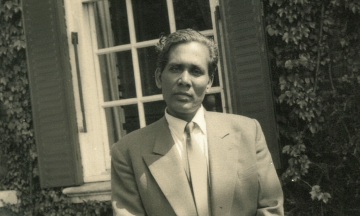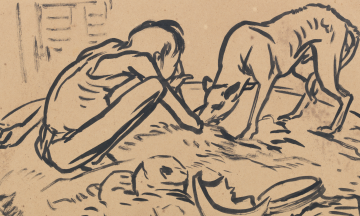By Asif Mahmud Sohan
The shutting down of Z-Library has hit Bangladeshi students and researchers hard and revived the discourse around intellectual property and freedom of information
On the 4th of November, the domain names of Z-library were seized by the US Department of Justice. The shutting down of the “world’s largest e-book library” caused a stir all around the world, especially in the university student communities. Z-Library has been a go-to resource for numerous students, readers, and even university professors all around the world for years.
The impact of this move is very keenly felt in a country like Bangladesh. This is an unusual situation, considering that the majority of Bangladeshi readers have not gotten accustomed to e-books, and even among the ones who have, the majority prefer physical copies. So, the ban on Z-Library should not, in theory, have been a huge deal here.
However, that hasn’t been the case – Z-Library’s departure has definitely been deemed as a huge loss by the readers of Bangladesh. There are two key reasons behind this. Firstly, university students find it extremely difficult (and costly) to come across the kinds of resources that they need. Z-Library used to function as the one trusted place that would provide them with the very resources they had been searching for. And secondly, of course, Z-Library was free to use. It may easily be called the Nilkhet of e-books, or rather, the free Nilkhet of ebooks – an endless collection, completely free.
Z-Library’s impact on academics: Students and teachers both will miss the shadow library
In spite of Bangladesh’s general lack of familiarity with e-books, Z-Library was a godsend to the students and teachers of the country. In a country burdened with a lack of resources everywhere, especially in the academic sector, the existence of Z-Library was similar to finding a pond in the middle of a desert. With its massive collection of 10 million e-books comprising of academic texts and nonfiction books, and more than 86 million journal articles, Z-Library offered resources that were used by the students for various academic assignments and studies. They were even used by teachers, who polished their knowledge and skill with this huge offering.
Of course, there might be a discussion regarding buying the original books. And this discussion can be summed up in a simple manner. Principles of Marketing, a book by Philip Kotler assigned to us in our first semester from our university, costs nearly 18 thousand takas on Amazon. Buying 3 such books will cost more than the yearly fee I have to pay my university. And a lot of books in our recommended reading lists are not even available in the country. So, realistically speaking, getting originals is simply not an option.
Going to Nilkhet is another option, of course. But if you want to go through a variety of resources, Nilkhet will fail you (despite the amazing collections they have). Simply put, anything out of your university course syllabus results in a tough search, and often impossible task of finding the book.
Even the teachers have a hard time affording such expensive books. And so, many books are often unavailable, so they hardly have any option other than relying on Z-Library. So, it’s quite understandable why the people associated with academics in the country would be so distraught over the ban on Z-Library.

Piracy, eBooks, and Bangladeshi readers: A curious relationship
Bangladeshi readers love pirated books. There’s no way around it, they love pirated books, or at least are accustomed to them. It will be very hard to find a reader in Bangladesh who has not benefited from Nilkhet.
However, the readers of our country have not yet taken to the concept of reading e-books on a regular basis, even when they are free. For academic purposes, when they don’t have a choice, students do use e-books. But for entertainment purposes, the preference for e-books is still very low. Most readers love paperbacks, and understandably so.
However, while it’s true that Nilkhet is an amazing source for cheap books of all kinds, it’s also true that Nilkhet simply cannot offer everything the readers desire. Nilkhet, in general, sells books that are extremely popular across the world. The rarer books are difficult to find. I myself have faced difficulties finding some rare Charles Dickens books. It’s understandable – the appeal for books from the 1850s is definitely likely to be scarce.
Z-Library, of course, was a massive help in this regard to the readers of the country. New books are often not available in Nilkhet – it takes some time for the sellers to obtain a new book and copy it. A very good example is the latest Colleen Hoover novel, It Starts With Us. Colleen Hoover has a massive fanbase in the country, and this latest book is the sequel to the bestseller It Ends With Us.
The book came out in October, and it became available for download for free on Z-Library. However, since the shutting down of the shadow library, there has been a massive movement with the #zlibrary hashtag on TikTok. Readers all around the world are upset with the loss of such a wonderful resource.
Ultimately, regardless of whether someone is an e-book reader or not, losing Z-Library will have a profound impact on the readers of a country such as ours.

A question of ethics: Should shadow libraries exist?
This one is really tough to answer. Of course, seeing it from the perspective of a middle-class book lover in Bangladesh, it is very tempting to opine that shadow libraries must exist. The lack of accessibility to books is a major problem that we face, both in terms of academic books and books for entertainment.
However, what shadow libraries do can come back to haunt us in the long run. Especially for self-published authors, shadow libraries such as Z-Library have been the source of nightmares. Reputed publications, in general, bear the cost of publishing the books, and marketing them as well. The author does not have to worry too much.
However, when it comes to self-publishing, a significant part of the cost involved has to be contributed by the authors themselves. Piracy, thus, puts a massive roadblock for aspiring writers who cannot find reputed publications to publish their creations. The income for authors is already on a steep decline – and piracy can make aspiring writers quit altogether on writing professionally. We may run out of decent books in the future due to such practices.
All things considered, though, one thing is certain – piracy will persist as long as the accessibility to books remains as difficult as it is right now. Especially in regard to the textbooks, as long as they are not published in different countries with specialized pricing, there simply is no other way for the students than to depend on pirated books. Access to knowledge should not be remotely as expensive as it is currently, and that, in many ways, is as big a crime as piracy, if not a bigger one.
- tarin fatema
- tarin fatema
- tarin fatema
- tarin fatema
- tarin fatema
- tarin fatema
- tarin fatema
- tarin fatema
- tarin fatema
- tarin fatema
- tarin fatema
- tarin fatema













